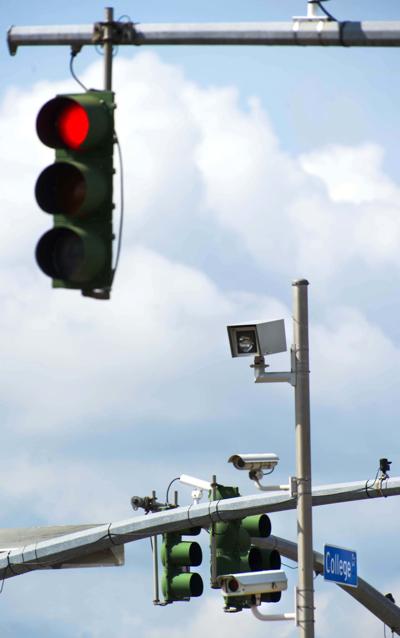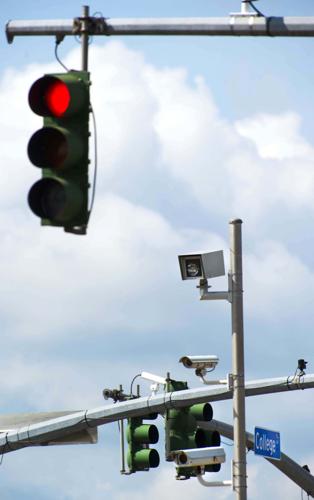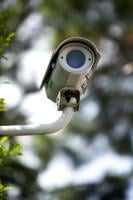In the high-stakes litigation over Baton Rouge’s controversial red light cameras, the city-parish now stands to lose millions of dollars rather than just thousands if a lawsuit challenging the constitutionality of the 12-year-old program is successful.
The city-parish government began using cameras to issue tickets for red light violations in October 2007. A number of people sued in December 2018, saying it didn’t have the authority to do so.
The city-parish believes any ticket issued before December 2017 should remain valid because it was written more than a year before the lawsuit was filed. The plaintiffs argued a 10-year “prescriptive” period is appropriate because they are seeking reimbursement for the payment of a thing not due.
Lower courts previously ruled for the plaintiffs, and justices Wednesday agreed without giving a written reason.
The city-parish's attorneys had warned in an November filing at the Supreme Court that a ruling in the plaintiffs' favor "will obligate the City/Parish, and ultimately the taxpayer, to incur substantial and unduly burdensome litigation costs and potentially millions of dollars in claims."
"This Court's reversal of the trial court's ruling ... would terminate approximately 90% of the instant litigation, or a decade's worth of red light camera violations," the city-parish stated in the filing.
The Supreme Court, however, declined to reverse state District Judge William Morvant's ruling. The state 1st Circuit Court of Appeal had affirmed his ruling in October.
Greg Rome, director of litigation and risk management for the Parish Attorney’s Office, said Thursday the office does not comment on pending litigation.
Loyola University New Orleans law professor Dane Ciolino said now that the plaintiffs have been given the green light to “reach back” 10 years, it would behoove the city-parish to entertain settlement discussions.
If the Supreme Court had reversed Morvant and agreed to a one-year prescriptive period, attorneys for the plaintiffs argued in a December filing at the high court that the amount of money potentially recoverable would have been in the thousands of dollars rather than the millions.
The lawsuit filed in late 2018 estimated the city-parish had collected roughly $10 million in fines from more than 80,000 citations issued over the life of its program.
East Baton Rouge Parish intends to leave its red light cameras up and operating after Jan. 1 even though its contract with the firm in charge …
The lawsuit claims the city-parish's Department of Public Works doesn't have the authority to enforce laws spelled out in the parish's home rule charter.
"It's mandated that the police department is responsible for enforcement of the ordinances of the council," according to Metairie lawyer Joseph McMahon III and Hammond lawyer Antony Maska, who represent plaintiffs Chad Soileau and Greg Duhon in the case. “There is no provision with the city's home rule charter authorizing DPW to enforce any traffic ordinances."
McMahon and Maska have already scored wins in similar suits in the New Orleans area.
Jefferson Parish did away with a program that was in place between 2007 and 2010 after questions arose about payments from its vendor, Redflex, to local lobbyists. A judge ruled in 2015 that the parish owed $7.1 million to 147,000 drivers who received tickets while the cameras there were in use.
In neighboring Orleans Parish, a judge ordered the parish to reimburse about $26 million in fines the parish collected over the initial three years of its program. The judge found that, for the period of 2008 through Nov. 3, 2010, the red light/speed light camera program was illegal under the Orleans Home Rule Charter, which mandated that the New Orleans Police Department — not the Department of Public Works — enforce traffic ordinances.
The New Orleans City Council on Nov. 4, 2010, moved enforcement of the camera ordinance from DPW to NOPD, curing the problem.
Maska said Thursday that he and McMahon expect the Baton Rouge case will now proceed much like the New Orleans case did “as the legal issues are nearly identical.”
But Darryl Gissel, chief administrative officer for East Baton Rouge, has said the Baton Rouge lawsuit doesn’t have much validity given how the city-parish’s red light program is set up compared to the ones in Orleans and Jefferson parishes.
“In our case, a police officer reviews every piece of footage to make sure the citations are done correctly,” he said previously.
The East Baton Rouge Parish Metro Council has agreed to extend the contract for the red light camera program for another four years, after wee…
The East Baton Rouge Metro Council agreed in November to extend the contract with Verra Mobility for the red light camera program for another four years. The California-based company operated under the name of American Traffic Solutions when the program was first implemented.
The city-parish currently has 24 cameras stationed across 16 intersections.
McMahon and Maska contend Verra Mobility isn’t authorized to issue citations under the parish’s home rule charter.
The program has generated significant revenue: $3 million annually from 2016 to 2018 and more than $3.5 million in 2019. The 2020 budget projects $2.205 million in revenue from the program.





